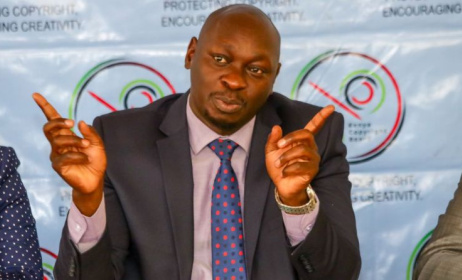Kenya: Tribunal bars MCSK from collecting royalties pending appeal
The Music Copyright Society of Kenya (MCSK) has been barred from collecting and distributing royalties following a ruling by the Music Copyright Tribunal, which lifted an interim order that had allowed the organisation to continue operating.
 The decision prevents MCSK from acting as a CMO while its appeal against the denial of its 2025–2026 licence is under consideration.
The decision prevents MCSK from acting as a CMO while its appeal against the denial of its 2025–2026 licence is under consideration.
The decision, delivered on 31 October 2025 by Tribunal Chairperson Elizabeth Lenjo, prevents MCSK from acting as a Collective Management Organisation (CMO) while its appeal against the denial of its 2025–2026 licence is under consideration. The ruling represents a significant victory for the Kenya Copyright Board (KECOBO), which regulates the sector.
“The interim order of injunction, stopping, barring, restraining, and/or prohibiting the respondent (KECOBO) from interfering with MCSK from the collection and distribution of royalties and all actions and/or decisions, is hereby discharged,” the tribunal sad.
The Tribunal cited recent High Court rulings by Justices Chacha Mwita and John Chigiti in related copyright disputes, as well as Section 46A of the Copyright Act, which outlines the legal framework for CMO operations.
KECOBO’s position
KECOBO, represented by lawyer Alex Nyabwengi, argued that MCSK had been operating unlawfully without a valid licence. The regulator maintained that the society “is neither approved nor authorised as prescribed under Section 2 of the Copyright Act to carry out the functions of a CMO, and thus, the impugned orders sought to permit illegality.”
On 14 October 2025, KECOBO announced that only two CMOs, KAMP Copyright and Related Rights Limited and the Performing and Audio-visual Rights Society of Kenya (PAVRISK), had been licensed to operate for the period beginning 5 November 2025. Three other applicants, including MCSK, were unsuccessful.
KECOBO also noted that all existing royalty tariffs had been nullified by a July 2024 High Court ruling, which found that they lacked adequate public participation. As a result, the regulator stated that “there are no tariffs upon which even approved and licensed CMOs can collect royalties,” accusing MCSK of failing to disclose this in its submissions.
MCSK’s response
MCSK, represented by Okubasu and Munene Advocates, argued that KECOBO’s decision to deny its licence renewal was unlawful. The organisation contended that the regulator had erred in claiming it failed to provide key documents required under Regulation 3(i)(c) of the Copyright Regulations, 2020, including certified annual returns, audited financial statements for the past five years, and authorisations to manage rights.
With the injunction lifted, the focus now shifts to the ongoing appeal. The Tribunal has directed KECOBO and the interested parties, PAVRISK and KAMP, to file formal responses before a final decision is made.
KECOBO, a state agency under the Ministry of Youth Affairs, Creative Economy and Sports, conducted a review process following a public call for applications on 4 September 2025. Six organisations applied, including MCSK, Film Makers Rights Achievers of Kenya (FRAK), KAMP, PAVRISK, and Collective Management Services (CMS).
The board approved KAMP and PAVRISK as the only qualified CMOs for the upcoming licensing period. Both were required to maintain transparent operations, use approved ICT systems for royalty management, and allocate at least 70% of collected royalties directly to artists.
PAVRISK and KAMP welcomed their approvals, describing them as endorsements of their compliance and commitment to transparency. KECOBO chairperson Joshua Kutuny said further details on implementing the new licensing framework would be announced in due course.




























Comments
Log in or register to post comments